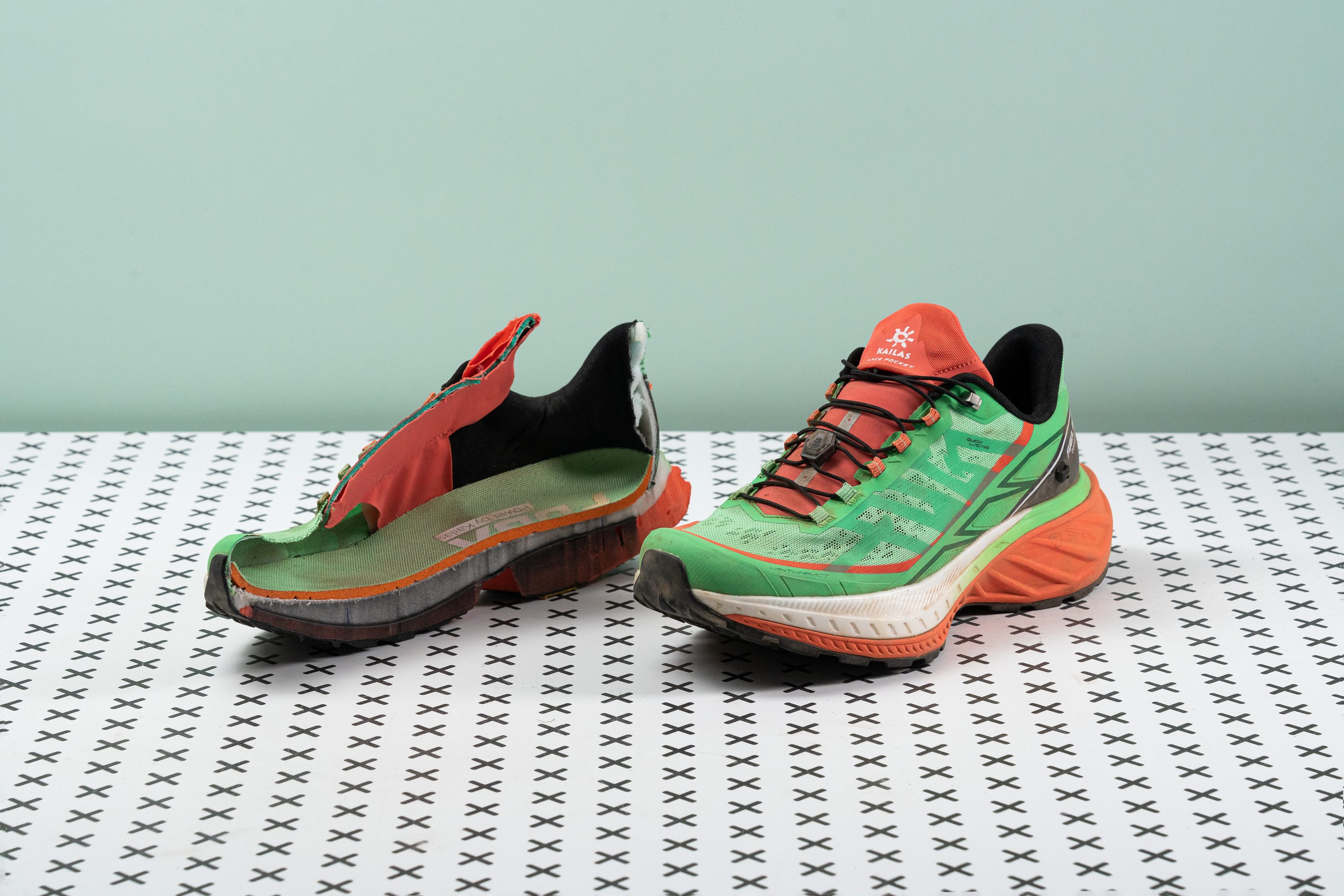Our verdict
Pros
- Propulsive ride
- Generous cushioning
- Stable for a plated shoe
- Accommodating fit
- Easy-to-use lacing
- Feels lighter than its weight
- Well-constructed
- Gaiter-friendly
Cons
- Overpriced
- So-so grip
- Lacks breathability
Audience verdict
Comparison
The most similar running shoes compared
+ + Add a shoe | |||||
|---|---|---|---|---|---|
| Audience score | 83 Good! | 90 Superb! | 90 Superb! | 89 Great! | |
| Price | $360 | $250 | $200 | $260 | |
| Trail terrain | Light | Light | LightModerate | LightModerate | |
| Shock absorption | - | High | - | High | |
| Energy return | - | Moderate | - | High | |
| Traction | - | High | - | - | |
| Arch support | Neutral | Neutral | Neutral | Neutral | |
| Weight lab Weight brand | 10.9 oz / 310g 10 oz / 284g | 9.1 oz / 258g 9.2 oz / 261g | 8.7 oz / 248g 8.8 oz / 249g | 10.5 oz / 299g 10.1 oz / 286g | |
| Lightweight | ✗ | ✗ | ✓ | ✗ | |
| Drop lab Drop brand | 12.5 mm 10.0 mm | 10.3 mm 5.0 mm | 13.0 mm 10.0 mm | 11.8 mm 8.5 mm | |
| Strike pattern | Heel | Heel | Heel | Heel | |
| Size | - | True to size | Half size small | True to size | |
| Midsole softness | - | Soft | Soft | Soft | |
| Difference in midsole softness in cold | - | Normal | Normal | Small | |
| Plate | Carbon plate | Carbon plate | Carbon plate | Carbon plate | |
| Toebox durability | - | Very bad | Decent | Very bad | |
| Heel padding durability | - | Good | Decent | Good | |
| Outsole durability | - | Decent | Good | Good | |
| Breathability | - | Breathable | Moderate | Moderate | |
| Width / fit | Narrow | Medium | Medium | Medium | |
| Toebox width | - | Narrow | Medium | Wide | |
| Stiffness | Stiff | Stiff | Stiff | Stiff | |
| Torsional rigidity | Stiff | Stiff | Stiff | Stiff | |
| Heel counter stiffness | Moderate | Moderate | Moderate | Moderate | |
| Lug depth | 2.5 mm | 2.7 mm | 2.9 mm | 3.0 mm | |
| Heel stack lab Heel stack brand | 40.4 mm 41.0 mm | 44.7 mm 44.0 mm | 34.7 mm 36.5 mm | 36.6 mm 38.0 mm | |
| Forefoot lab Forefoot brand | 27.9 mm 31.0 mm | 34.4 mm 39.0 mm | 21.7 mm 26.5 mm | 24.8 mm 29.5 mm | |
| Widths available | Normal | Normal | Normal | Normal | |
| Season | - | SummerAll seasons | All seasons | All seasons | |
| Removable insole | ✓ | ✓ | ✓ | ✓ | |
| Orthotic friendly | ✓ | ✓ | ✓ | ✓ | |
| Ranking | #254 Bottom 33% | #68 Top 18% | #69 Top 18% | #88 Top 23% | |
| Popularity | #374 Bottom 2% | #295 Bottom 23% | #323 Bottom 15% | #230 Bottom 40% |
Size and fit
Size
Who should buy the Kailas Fuga Elite 2
I support the purchase of this road-trail race shoe if:
- you are an advanced runner looking for a carbon-plated shoe to set new PBs;
- you need a max-cushioned shoe for going long distances or even an ultra;
- you want an SUV workhorse that runs on both road and trail.
Who should not buy this running shoe
I find the Kailas Fuga Elite 2 quite expensive, even for an elite-level plated shoe. For comparison, the average price of race shoes with a carbon plate is $205 ($155 less!). Even the renowned Nike Air Zoom Alphafly Next%, which is among the industry’s game-changing shoes, is priced at $275.
And if you need a plated shoe for tackling the outdoors, there is an excellent trail racer at just $200, the Hoka Tecton X.
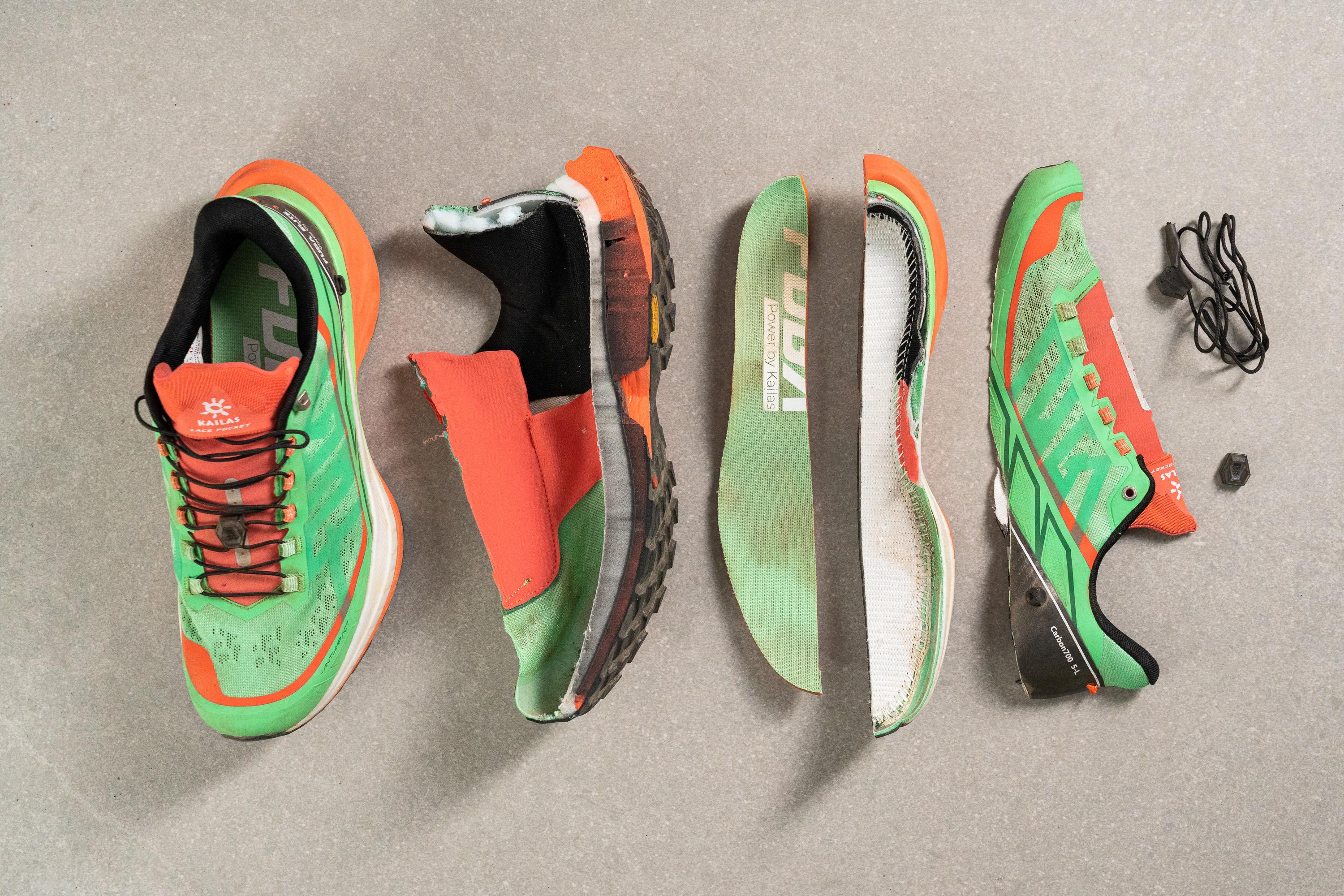
Fit is perfect but check with the size chart first
My foot is 260 mm long and is regular in width. I normally get EU 41 (US 8) in most of my running shoes but in Kailas I had to size up to EU 42 (US 8.5).
Because it is a Chinese brand, expect that the sizing could be inconsistent with what you normally get in Nike or Adidas. So, I strongly recommend measuring your exact foot length and checking Kailas’ footwear size chart before ordering.
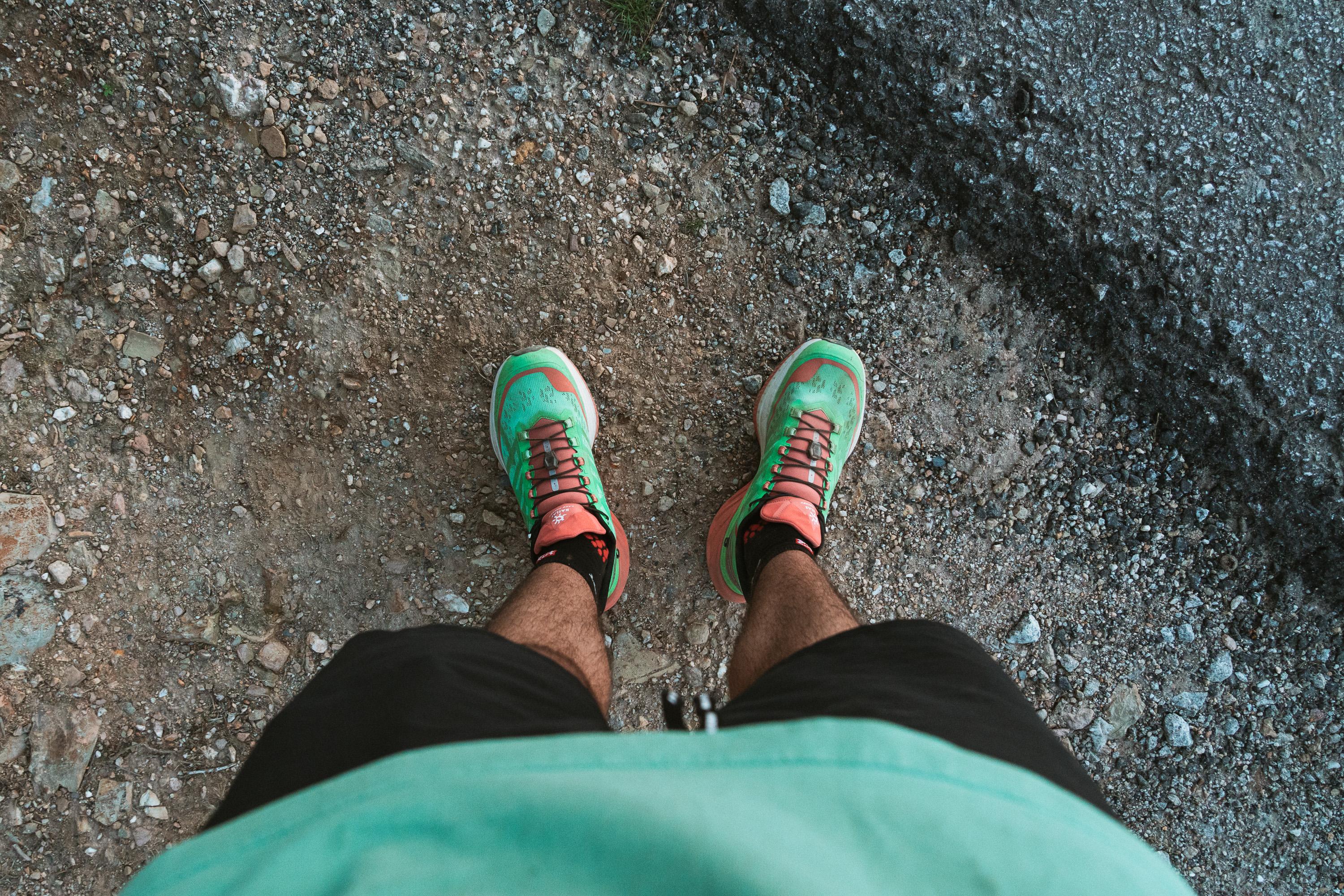
Once I made peace with the sizing of the Fuga Elite 2, I was pleasantly surprised with its accommodating toebox and a rather forgiving upper fabric. It feels structured but at the same time, it provided enough room for my swollen feet towards the end of the run.
I haven’t experienced any heel slippage either as the shoe is well-padded around the heel and ankle. The gusseted tongue also stayed in place just fine.
Speed lacing is really efficient
No issues with the lockdown here. I’m a huge fan of Salomon’s Quicklace system and this one from Kailas is pretty similar in action. Makes it super quick to put the shoe on and off and adjust the fit on-the-fly.
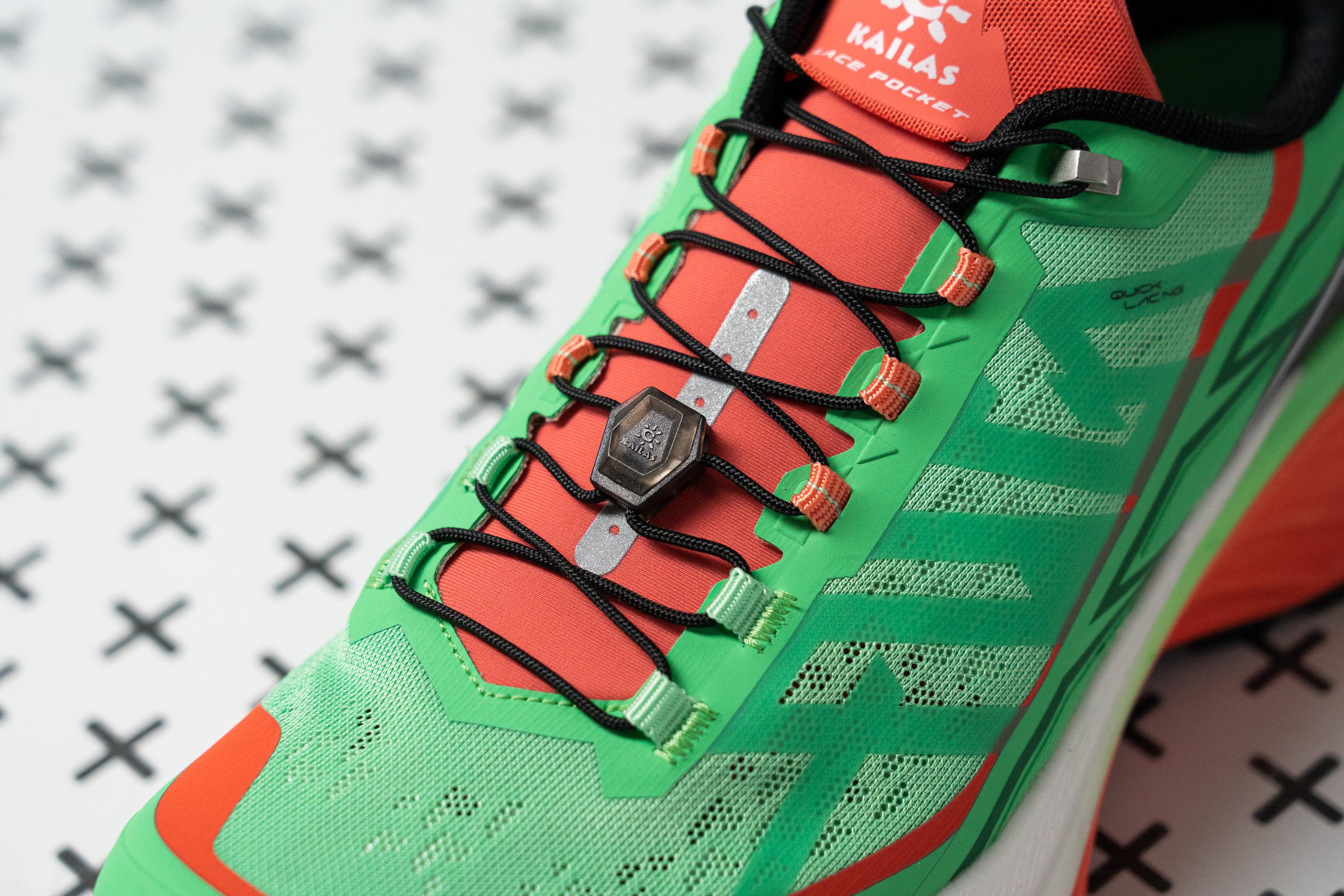
But this is actually the first time I see a double-buckle bungee lacing on a shoe. I feel like it gives a slightly more fine-tuned fit because you can regulate the tightness around your toes and in the midfoot separately.
The lace pocket is a must-have for me and, thankfully, it is added there on the tongue where I can shove the excess laces.
Kailas Fuga Elite 2 is a recipe for speed records
Disclaimer: I am a heel striker running at moderate paces. So, my experience with this race shoe is likely to feel different from someone who breaks records in running competitions.
But no matter what type of runner you are, I promise, the Fuga Elite 2 will set your feet flying.
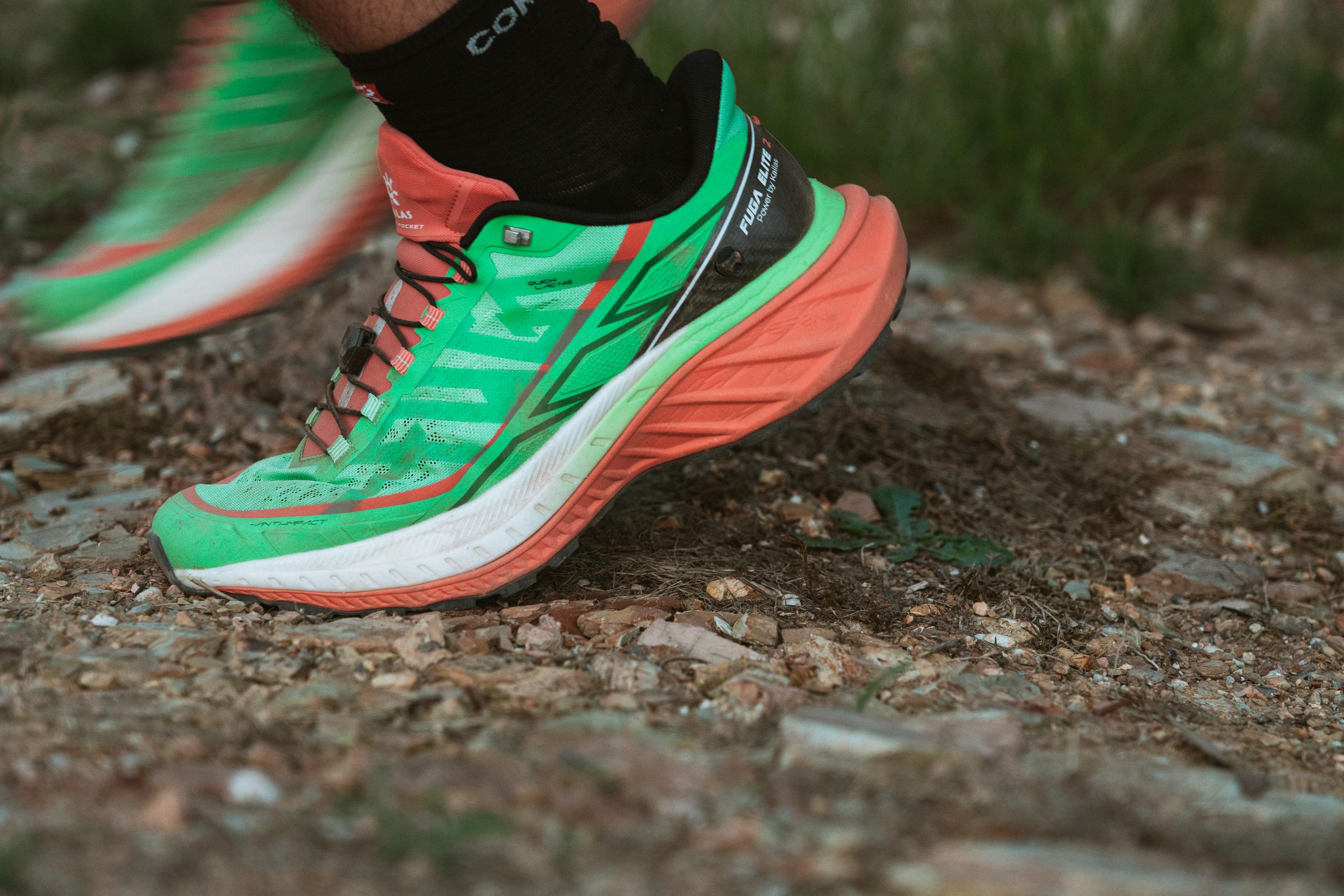
The shoe employs a full-length carbon plate which makes it super stiff (5/5 on our scale), and as a result, propulsive. So, whether you land on the heel, the midfoot, or the forefoot, you are sure to get that extra kick with each step.
Cushioned all the way
This Kailas shoe packs an insanely bouncy cushioning that begs you to run longer. And there is a ton of it.
With a stack height of 40.4 mm (measured together with the insole), the Fuga Elite 2 is way above the average 33.6 mm across carbon-plated race shoes. The same goes for the heel-to-toe drop: it’s 10 mm over the average 7.4 mm among its kind.
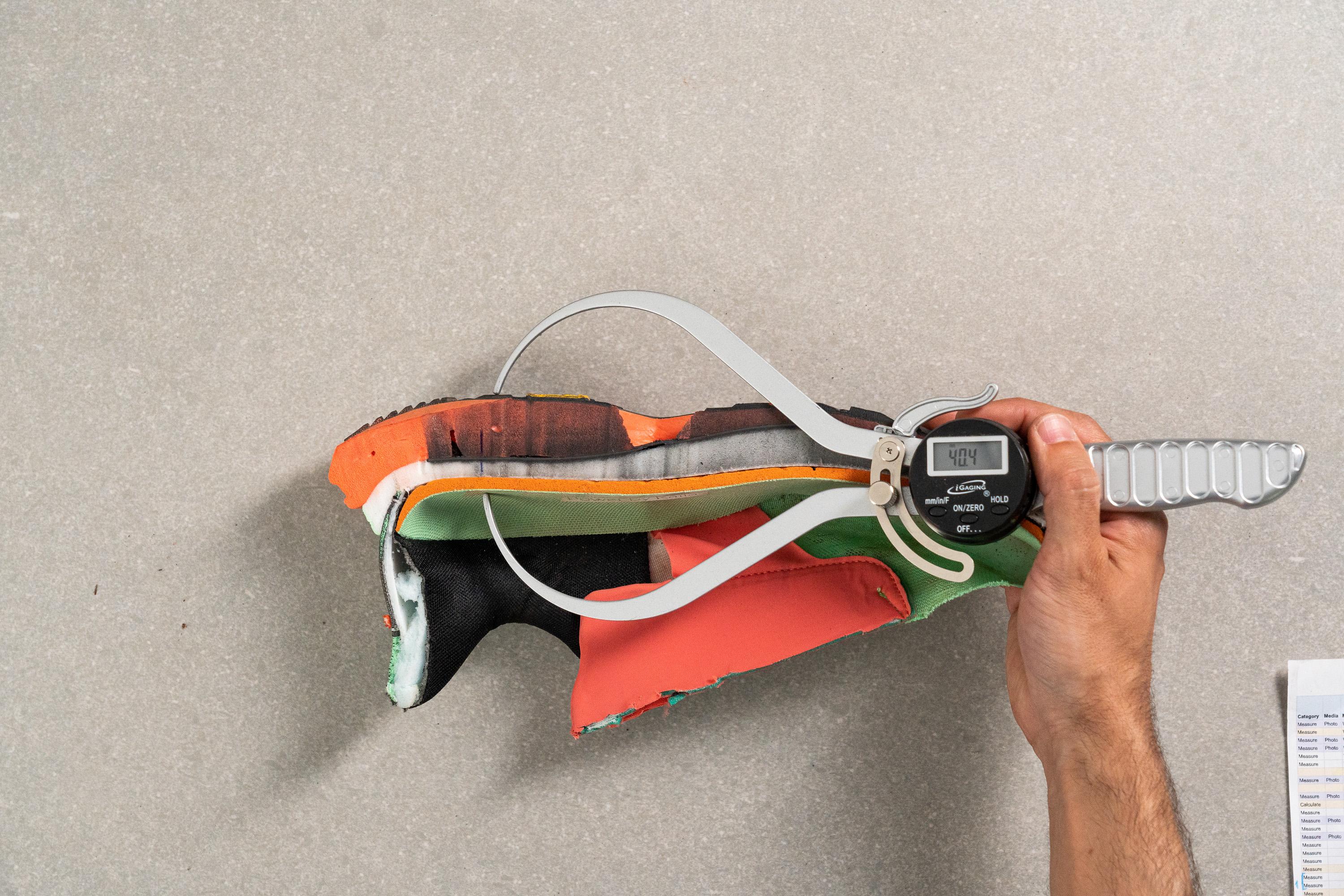
The foam itself also shows an above-average level of softness on our durometer tests, 19% softer to be specific. However, compared to Nike ZoomX Vaporfly Next% 2, it is 50% firmer. I assume that’s because the Kailas Fuga Elite 2 is a road-to-trail shoe and you do need that bit of density to feel surefooted on unpredictable terrain.
Also, do keep in mind that the Kailas gets 28.4% harder in colder temperatures (yes, we put it in the freezer for 20 minutes). So, it will require a little warming up on a chilly day to reveal its capacities.
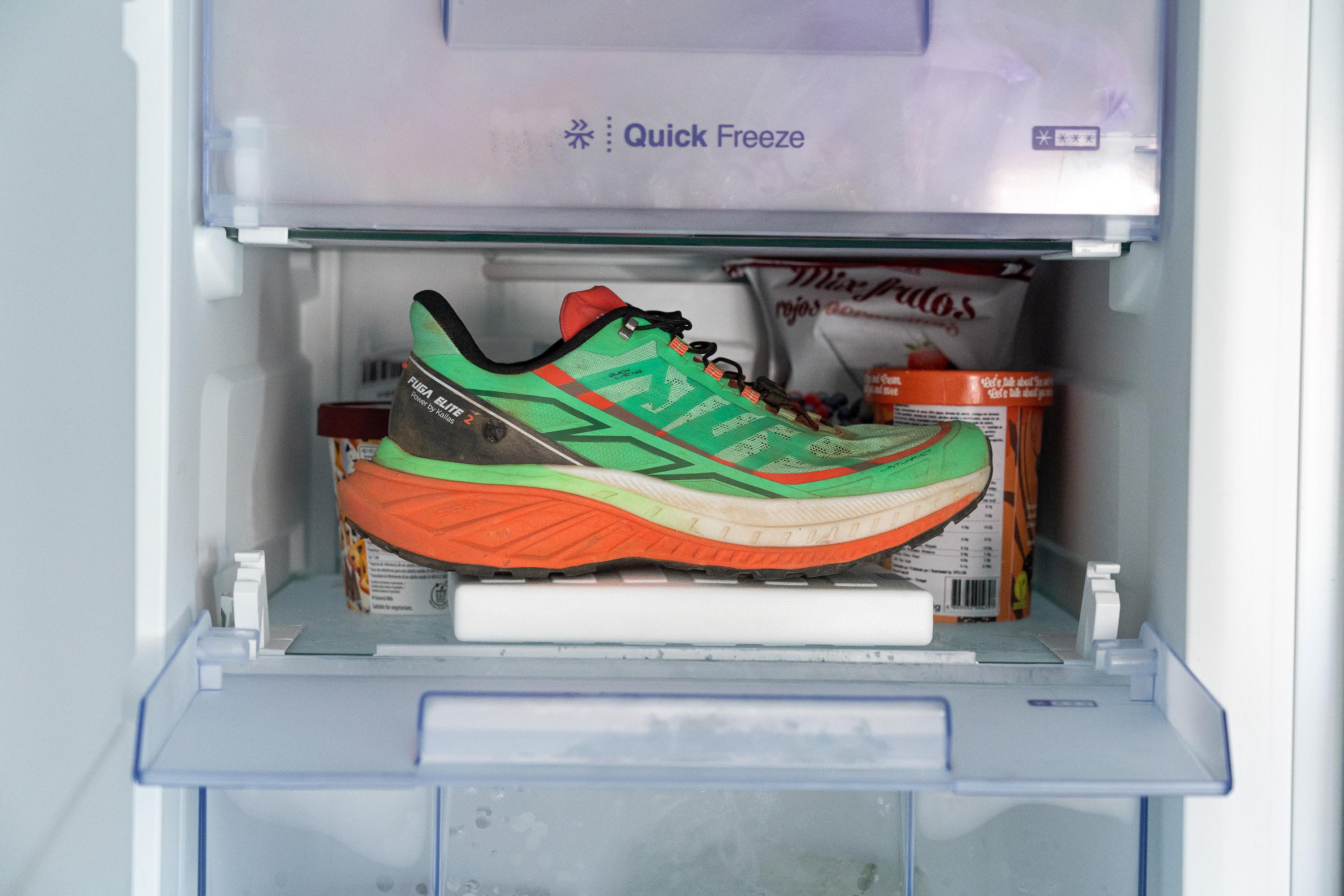
Fuga Elite 2 is stable for a plated shoe
Such a tall platform made me concerned about stability at first. But while on the run, I couldn’t help but notice the shoe’s pretty wide base. I even felt steady while cornering a few tricky paths.
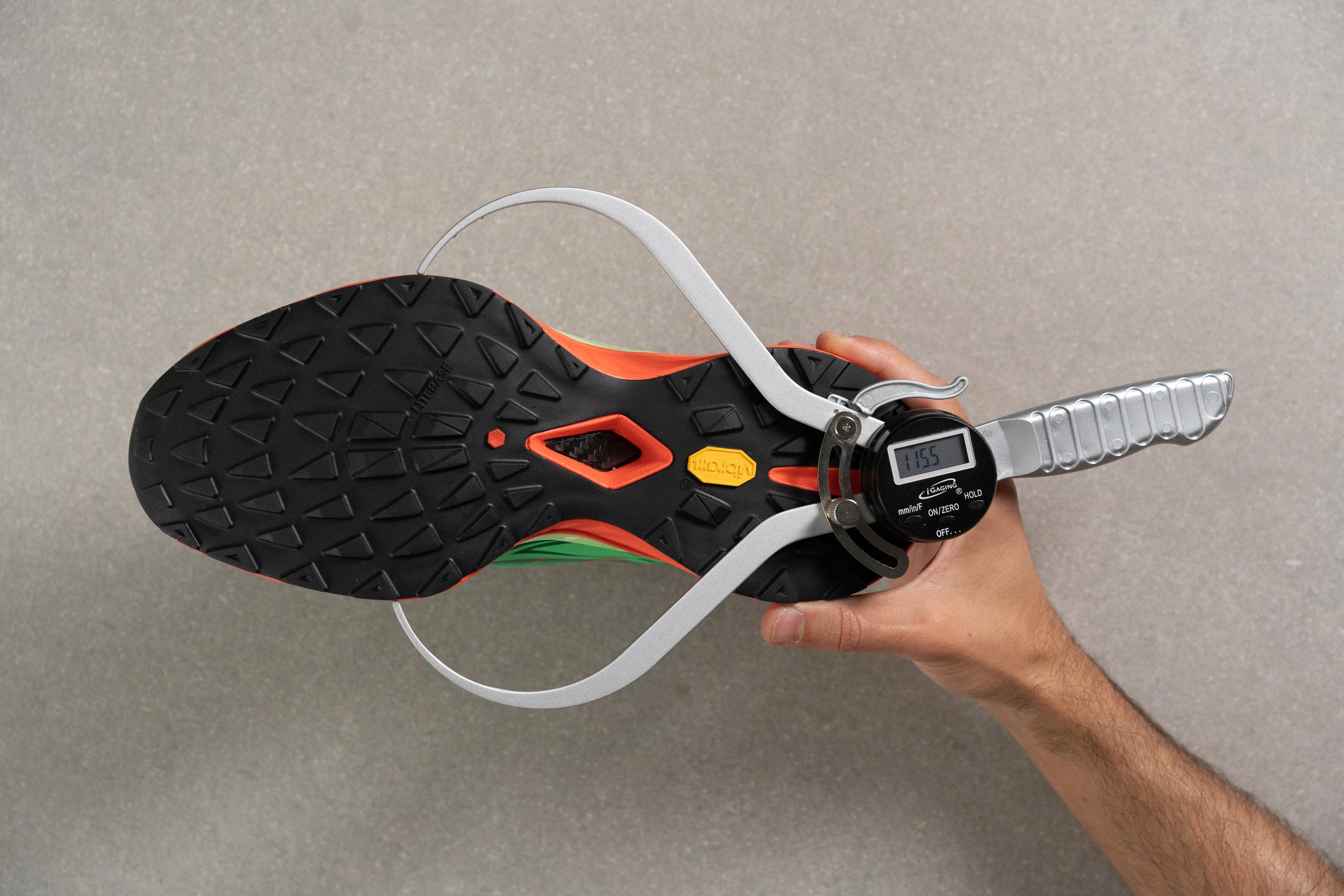
Coming back to the lab, I measured the shoe’s base in the forefoot (115.5 mm) and in the heel (93.8 mm). And this explained everything: the shoe really is above-average in terms of sole width (forefoot average: 112.0 mm, heel average: 89.2 mm).
Weighs like a daily trainer, feels like a race shoe
This remains an enigma to me. Taking the Kailas Fuga Elite 2 on a test run, I was certain that it weighs somewhere close to the Adidas Adizero Adios Pro 2.0 (223 g). But putting the shoe on the scales, I couldn’t believe my eyes - 300 g! How come?
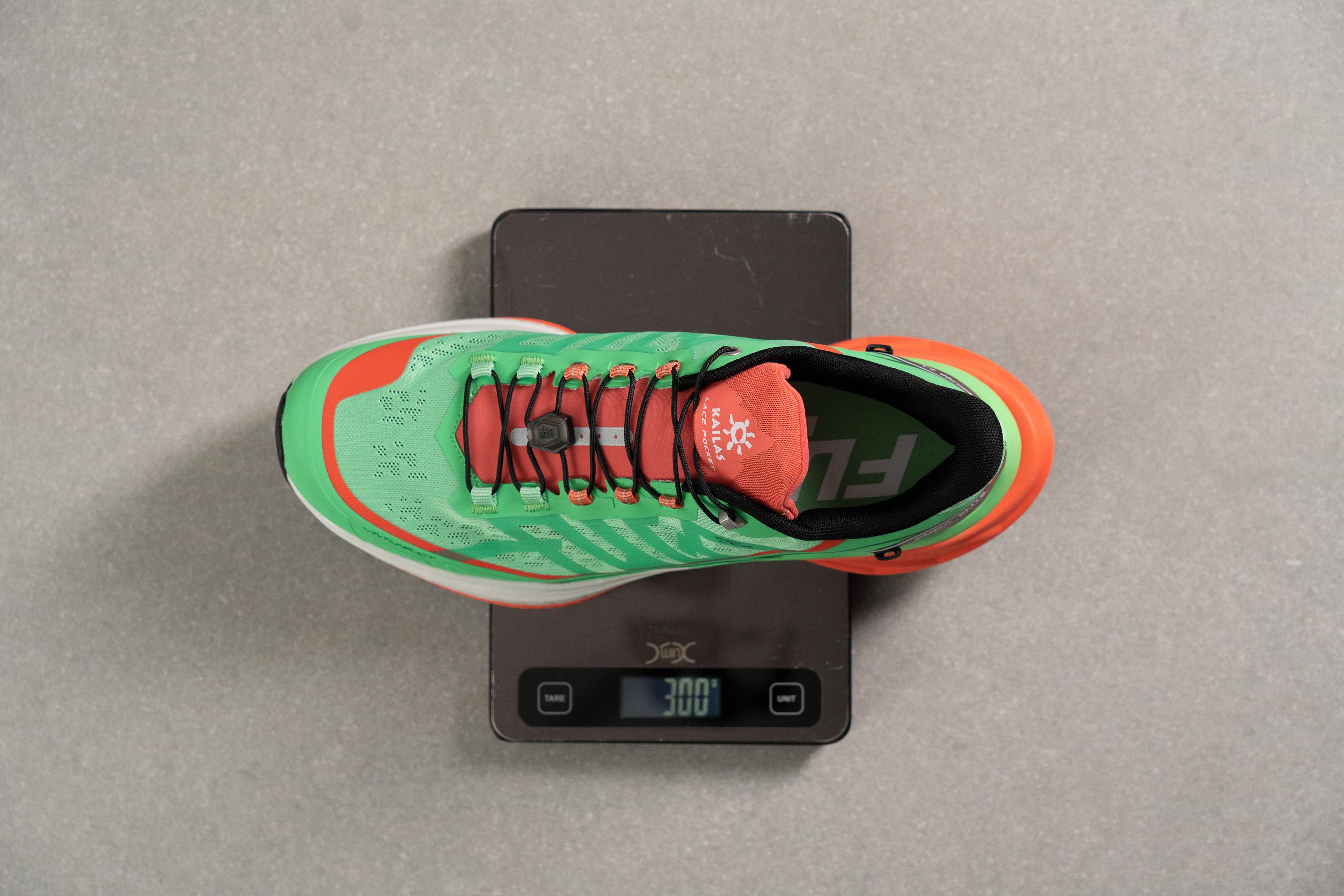
This is even heavier than the average for carbon-plated trail shoes (286 g).
It must be the springy sole that messes with the perception of weight in the Kailas.
Traction could be better, even for a hybrid shoe
The Fuga Elite 2 employs the Vibram Megagrip Outsole to safeguard your foot from debris and sharp stones along the road. It features 3-mm deep lugs which is right at the average of our lab-tested shoes, both road and trail.
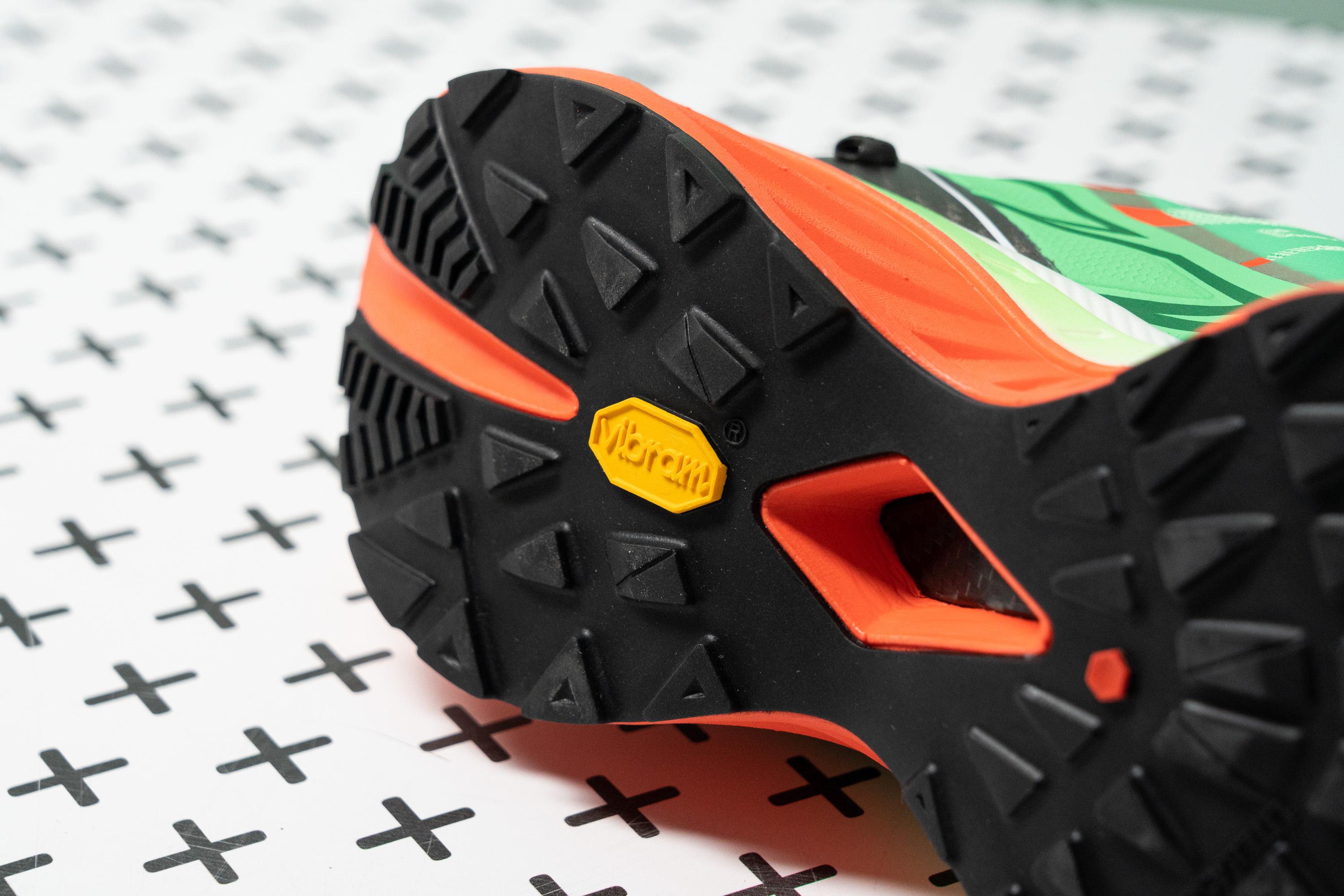
I didn’t expect much from it in the first place knowing that it is meant as a hybrid shoe. But even with that in mind, I think that a $360 shoe could afford a much better grip.
Don’t get me wrong, it’s not like skating on ice. The traction is decent but I just wouldn’t trust the shoe to tackle more technical and demanding terrain.
Another elite running shoe from Kailas that’s more trail-ready and shows better grip capacity is the Fuga Pro 4.
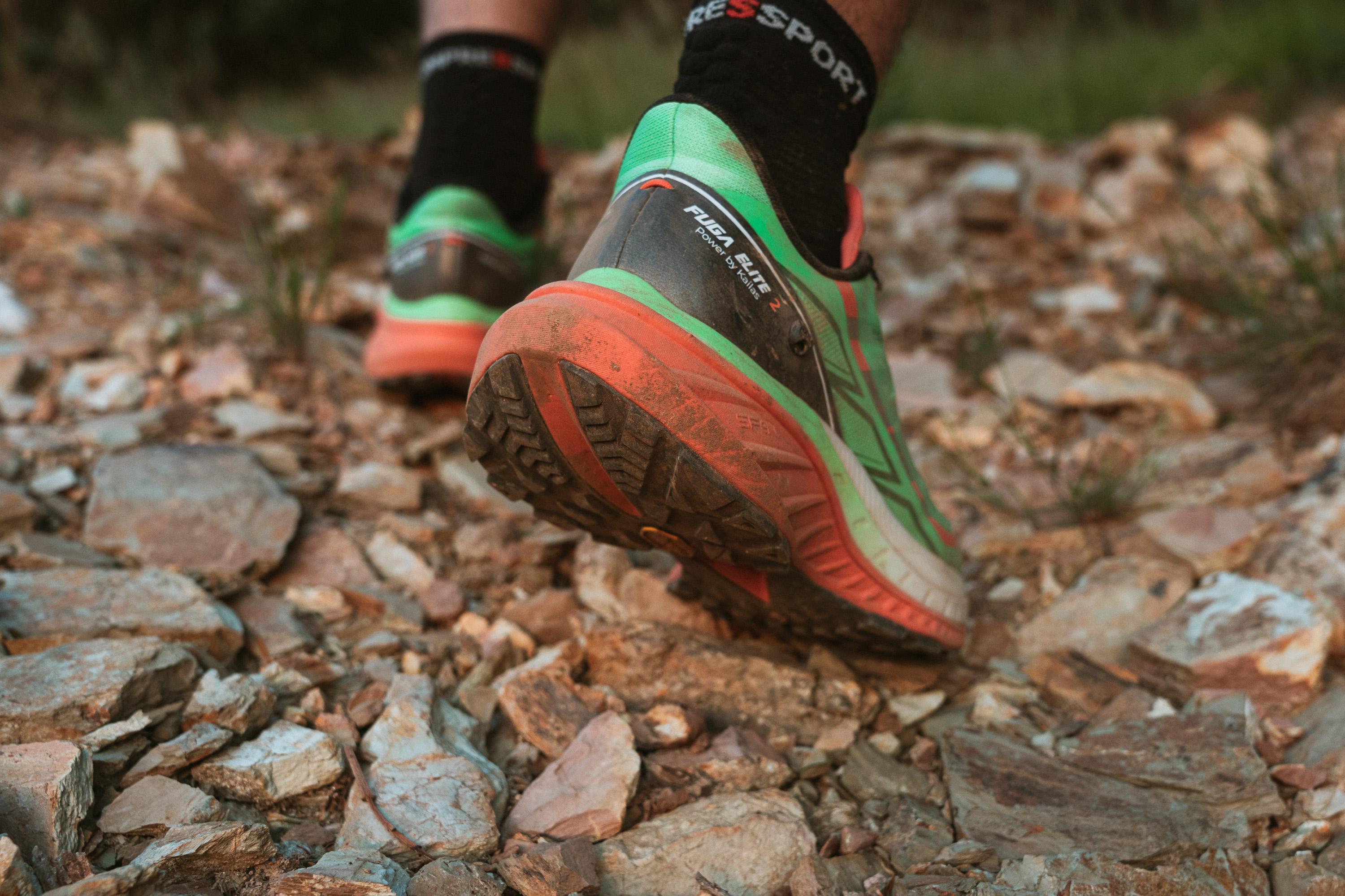
On the bright side, the treading doesn’t get clogged with mud.
This Kailas shoe will go 500 miles and more
The overall craftsmanship and materials of the Fuga Elite 2 are what I consider the justification for the shoe’s high price point.
It is a well-constructed shoe with reinforcements all throughout, contributing to the trainer’s shelf life.
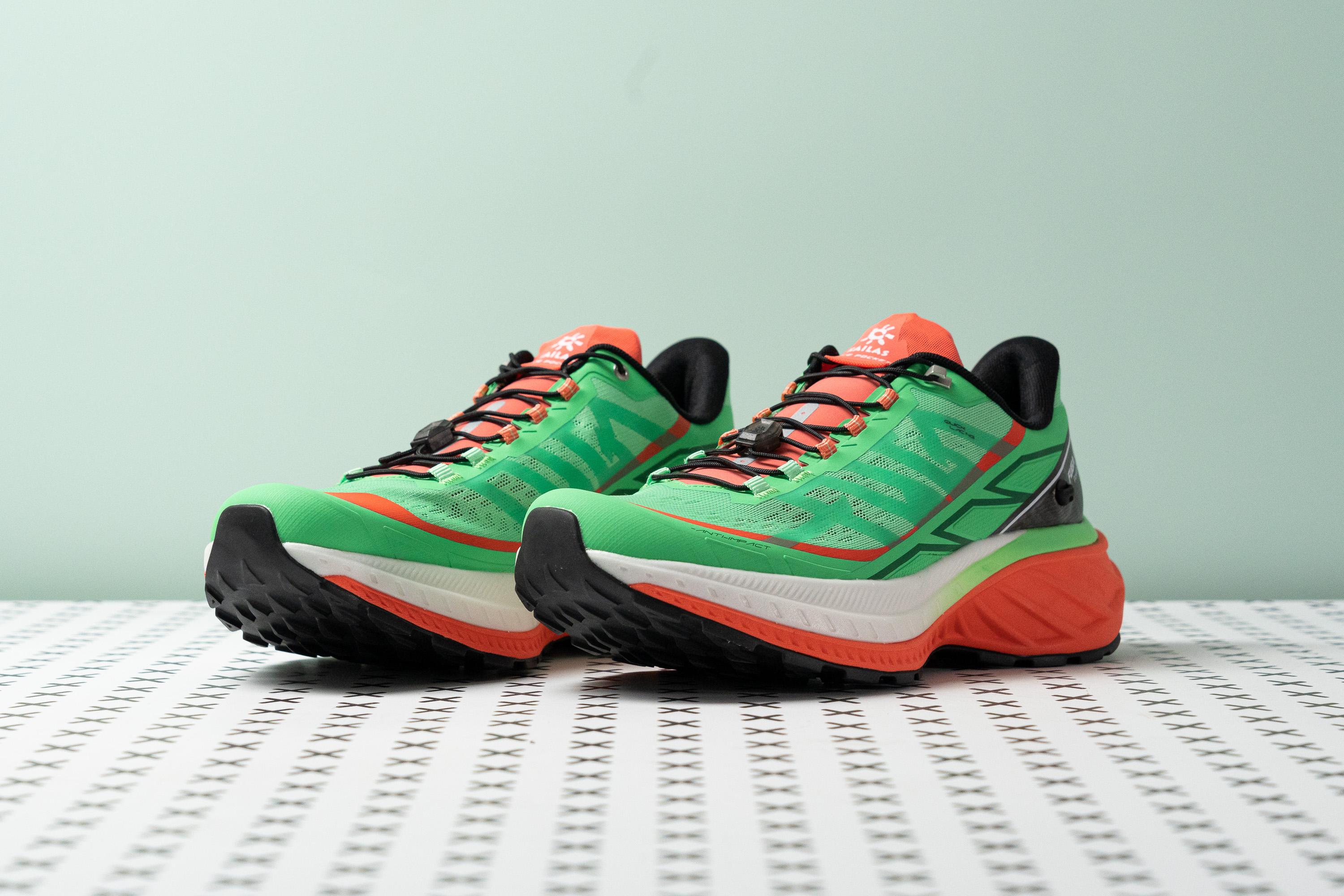
Not a shoe for hot days
Compared to other Kailas running shoes that I’ve tested, the Fuga Elite 2 is the warmest. Contrary to the brand’s claims of “breathable mesh and lining,” I wasn’t happy with how easily my feet started to get warm inside the shoe.
The Kailas Fuga EX 2 does a considerably better job of keeping your feet ventilated on warmer days.
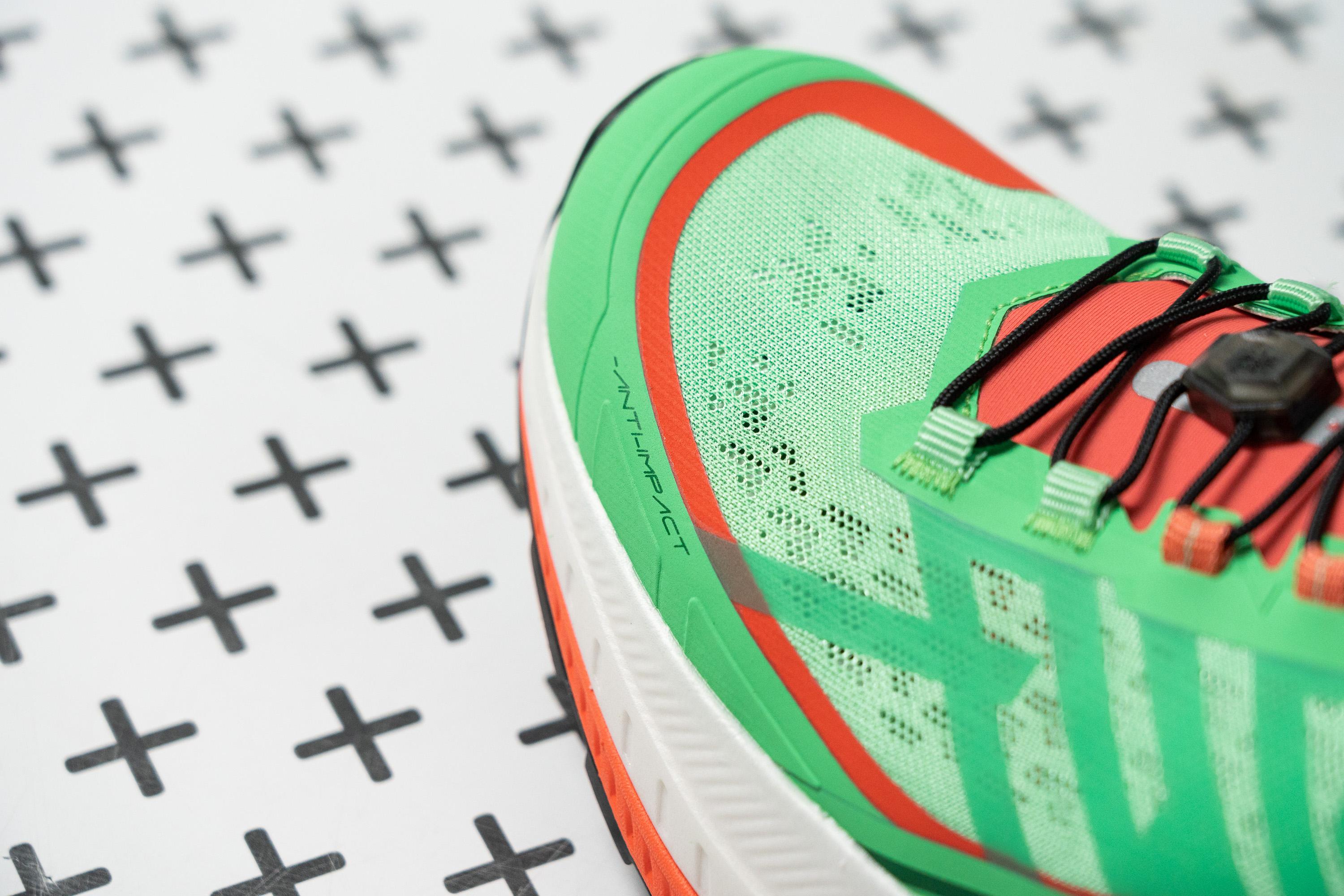
Gaiter-friendly
I don’t use gaiters that often as the weather here is dry most of the time, but I just love how easy Kailas has made it to attach those. The shoe has a 4-point gaiter holder system (those little knobs throughout the upper) that helps you get the gaiter on and off in an instant.
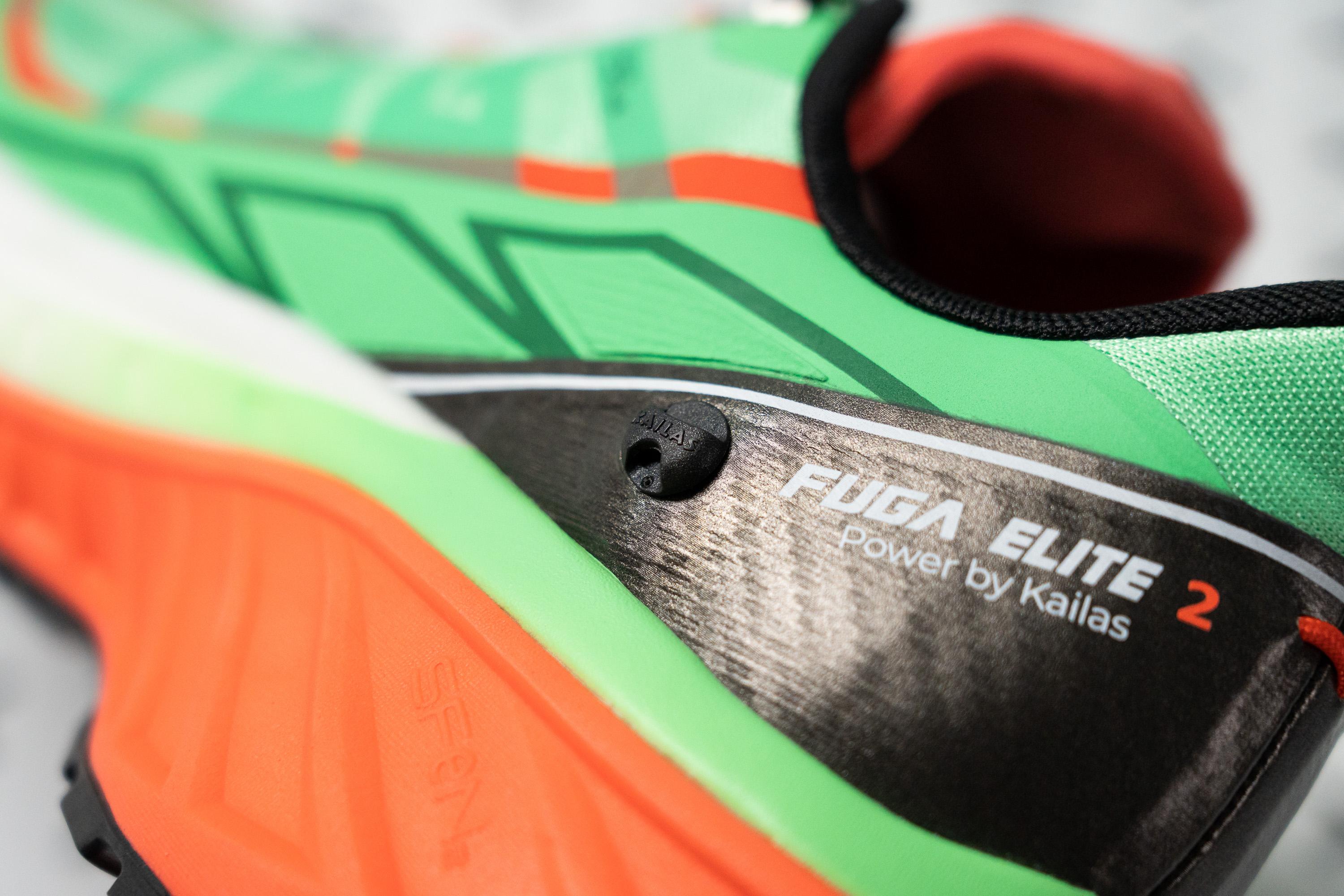
Haven’t heard of Kailas before?
For me, this was the first encounter with the brand. And a very positive first impression I must say. This Chinese company was founded in 2003 and started off with climbing equipment and apparel.
Given such a comparatively short history of producing running footwear, I think Kailas has gained itself a solid spot in our rankings with the Fuga Elite 2 along with the other Fuga models.

